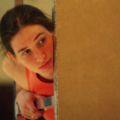Last month’s blog post really struck a chord with a lot of people (thanks everyone for all the facebook likes and shares!). I am feeling quite humbled, but also compelled to write more… Because although perfectionism is so pervasive in the dance-world, not a lot of dancers are aware of the impact it is having on them, or how it can actually prevent them from performing at their best. So today, let’s delve a little deeper into the dark side of perfectionism...
What’s so bad about perfectionism?
At first glance, perfectionism can seem like an amazing thing, and perfectionists, amazing people. And it’s true – there are certainly many wonderful benefits of perfectionism:
- You work very hard
- You have very high standards
- You are reliable
- You care about what you do
- You pay attention to the most intricate details
- You achieve amazing results
What could be so bad about that???







